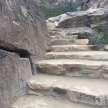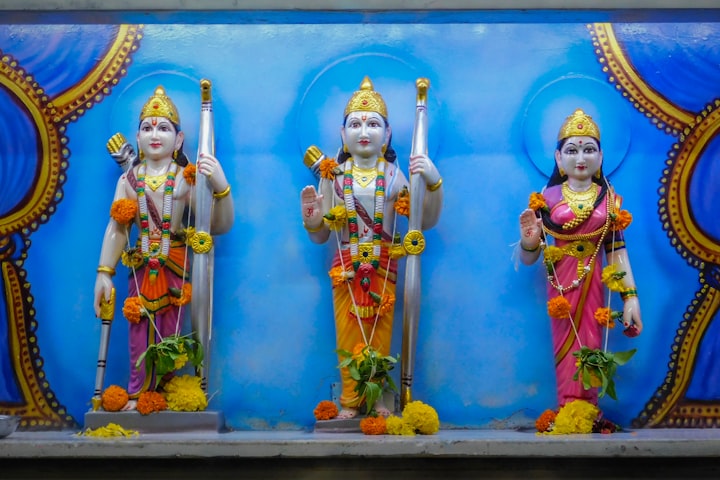Analysis with Civilization and Gilgamesh
Humanitarian Studies

The Sumerian Society and Connection with The Epic of Gilgamesh
The epic poetry of Gilgamesh has been a key example to connect the relationship with the Sumerian society. The Sumerian civilization shows a cultural mirroring effect with the epic itself, allowing today’s society to take a closer look at the characteristics and values the Sumerians included in their society. Throughout time, there were multiple evidence and discoveries found such as artifacts, that help us better understand the Sumerian civilization. Some main aspects of Sumerian society are the religious views, environment, and the development of duties, which have also been represented in The Epic of Gilgamesh.
The Sumerian society had a polytheistic religious viewpoint and has been evident in the epic poem as it includes goddesses and gods. They believed that these goddesses and gods were immortal and can be either destructive or nurturing. In Tablet One: Column II., Thompson’s, The Epic of Gilgamesh, introduces the polytheistic viewpoint as so, “the gods of high heaven address’d the god Anu” (19) and “the goddess Aruru” (32). His mother a goddess (Nissun), and father a mortal king, Gilgamesh had trouble with his arrogance and questions his mortality, he continues to feel confused in his role of a king. Reading more into the epic, after Gilgamesh and his friend Enkidu defeat Humbaba, another goddess (Ishtar) is introduced as she sways Gilgamesh to be lovers. However, Gilgamesh declines her offer and Ishtar becomes angry then decides to summon a creature that mortals do not have the power to do, “‘O make (me) a Heavenly Bull, which shall Gilgamish [vanquish]’” (p.34, I. 94). Once, both Enkidu and Gilgamesh defeat the bull, Enkidu is cursed with death for upsetting the goddess. Gilgamesh grieves and learns the value of relationship from Enkidu’s death. After the grief he sets out on an adventure to meet another immortal, Utnapishtim, and seeks advice.
Gilgamesh’s meeting with Utnapishtim allows us to gain the insight of Sumerian’s environment. This is one of the most valuable part of the epic, as it celebrates the Sumerian societies accomplishment in the development of a flood system and surviving hot temperatures “the Road of the Sun” (Thompson, p.43, pp.1). Utnapishtim has gain immortality with the survival and efforts from the great flood (p.52-53). One of the famous architecture of Sumerian civilization was the ziggurats with consisted of supporting and complex construction against floods. The structure also plays a symbolic role in their religious practices and views as the ziggurat contains brick pieces and heights to represent a stairway to heaven or home for the gods. Not only was the height of the ziggurat tall, but the detailing of the bricks and slabs helped the structure stand against the harsh floods the Sumerians often times had to endure.
As Utnapishtim continue to have Gilgamesh do tasks in order to become the immortal he wishes to become, Gilgamesh has failed multiple times showing his side of humanity as he learns what the duty and role of a king is. For example, to expand the idea of the importance of duties, another character that is introduced is Urshanabi. This character demonstrates how a duty must be performed in a civilized manner or the role/privilege will be lost. Urshanabi, demonstrates a simplistic, yet important duty as a sailor, “Gilgamish, there is Ur-Shanabi, boatman to Uta-Napishtim”(p.46, I.28) in order for Gilgamesh to meet Utnapishtim for advice as they cross the “Waters of Death” (p.46, I.27). In the first tablet of Thompson’s, The Epic of Gilgamesh, we learn that Gilgamesh was not the best king and had made sins of his own. He questions his mortality and does not go out to gain wisdom. When he forms his bond with Enkidu, he was able to expand his mind to go out and defeat Humbaba with the idea of his friend. As he defeats Humbaba, his bravery is shown in the epic. Gilgamesh continue to go on adventures as Enkidu dies after the meeting of Ishtar the goddess. Trying to seek more knowledge he meets Utnapishtim and goes through the story of how Utnapishtim became immortal. As Gilgamesh gains more valuable characteristics of what defines a great king and leader, it reflects the importance of developing duties and benefits of civilized performance as it creates accomplishments of the society as a whole. Gilgamesh defeating Humbaba and the bull, has shown his duty to protect people from danger.
With the religious aspects of polytheistic beliefs, environmental accomplishments through architecture and flood systems, and developing a system for duties and roles are aspects that a worth celebrating from the Sumerian society. These successes lead to more future civilizations, demonstrating key features of what is needed to form civilizations. These are main importance to forming a civilization and is demonstrated throughout the writings in The Epic of Gilgamesh. The overall meaning for the epic poetry displays the importance of forming relationships, values, gaining experience forms wisdoms, and idea of humanity (characteristics that hint us towards understanding what ‘human’ is defined as).
Citation
Thompson, R Campbell. “The Epic of Gilgamish.” The Epic of Gilgamish: Title Page, Sacred- Texts.com, 1928, www.sacred-texts.com/ane/eog/eog00.htm. Accessed 29 Dec. 2020.
Karki, Steffi. (2020). "The Sumerian Society and Connection with The Epic of Gilgamesh". Accessed 27 Apr. 2022.
About the Creator
Doors to Life
Welcome! Everyone has gone through multiple doors in their lifetime, so let's continue to discover more hidden door's about life. What will the next door lead you to? Let me tell you what I discover in life one door at a time!






Comments
There are no comments for this story
Be the first to respond and start the conversation.